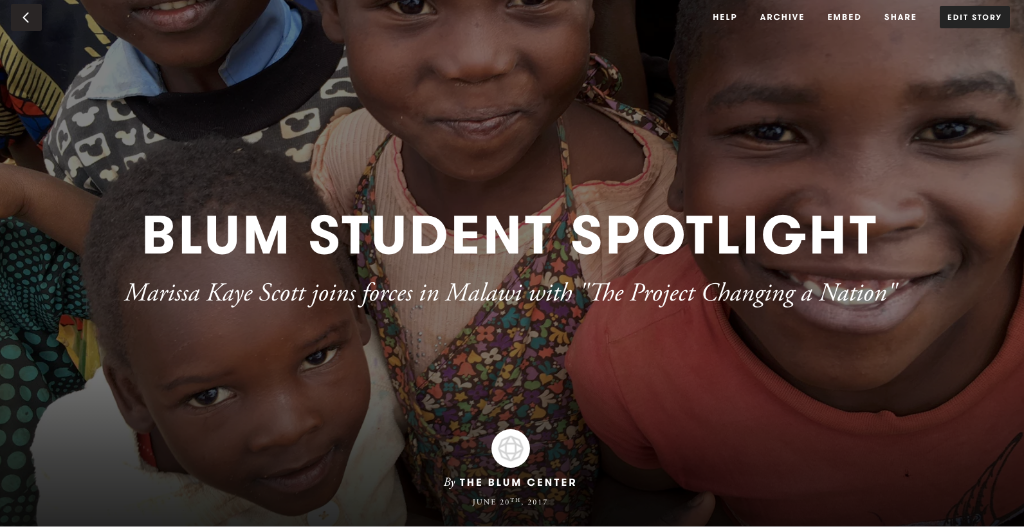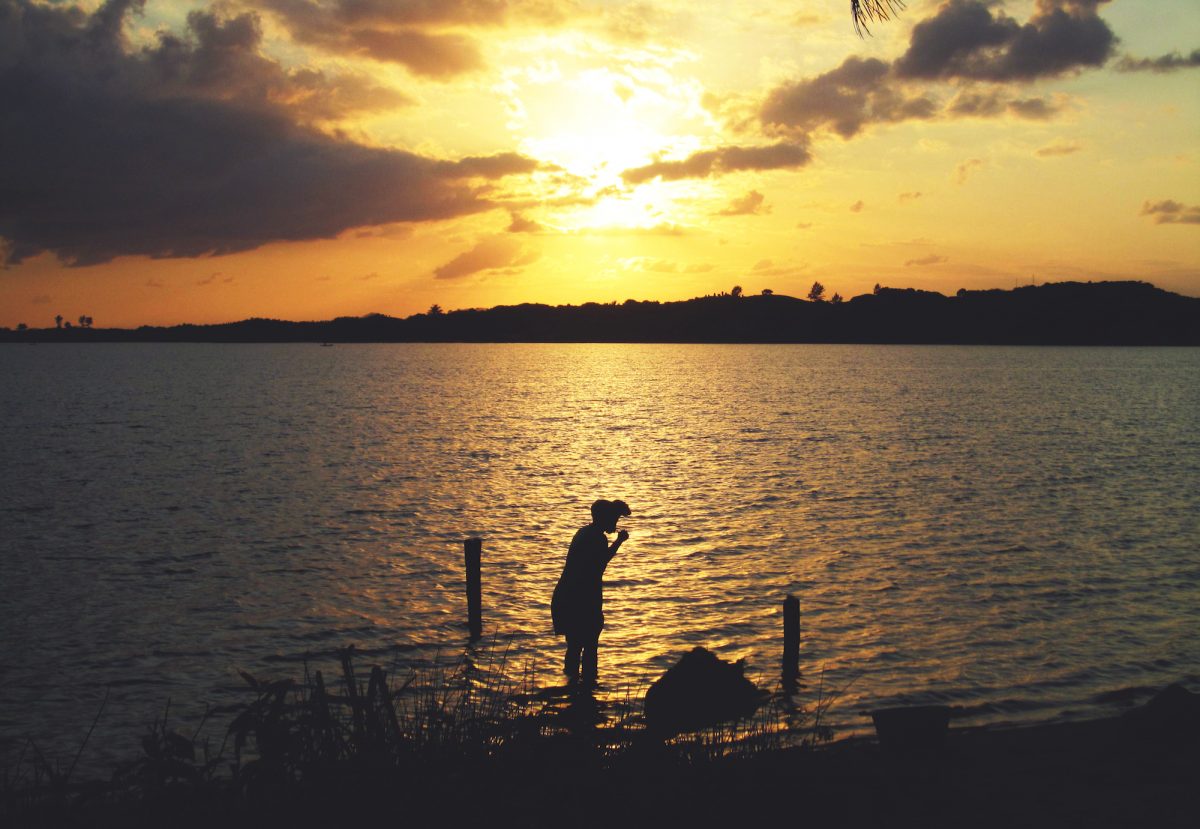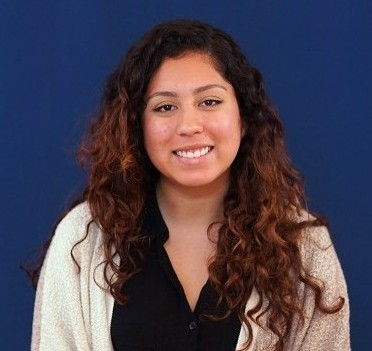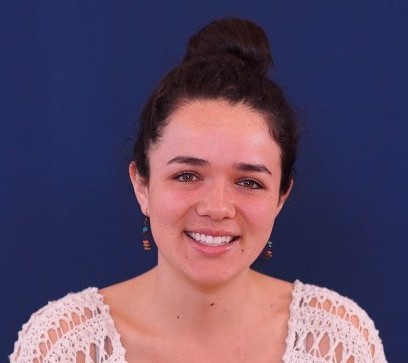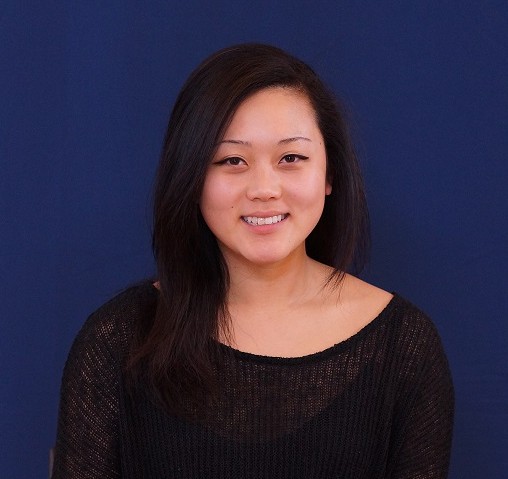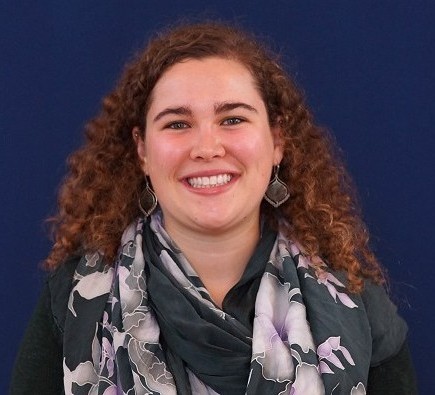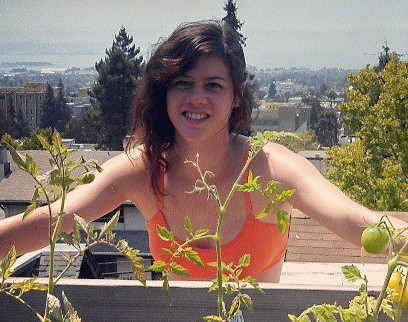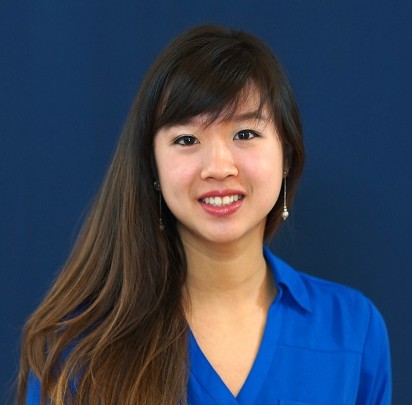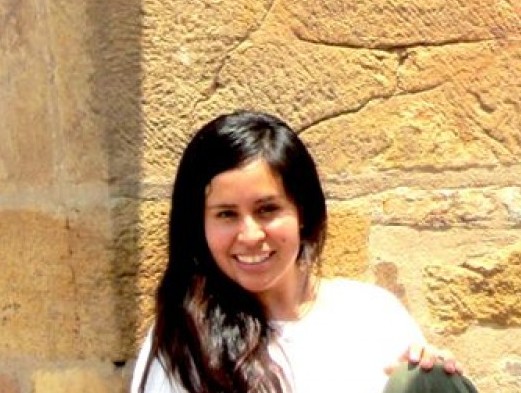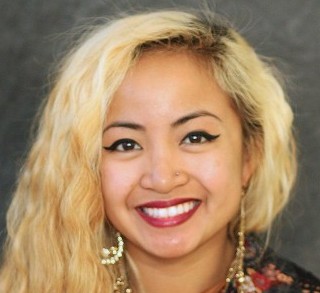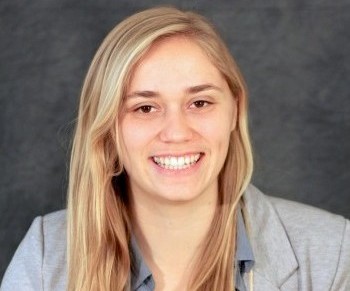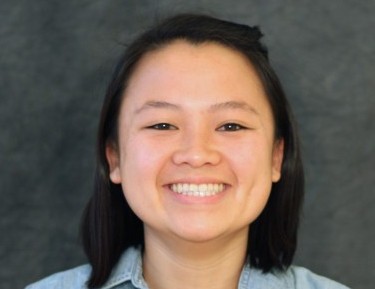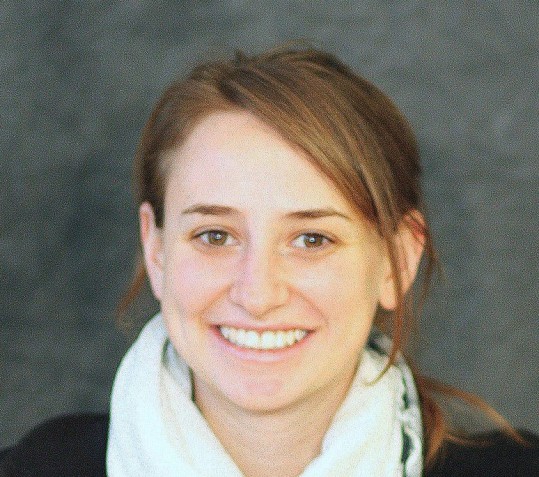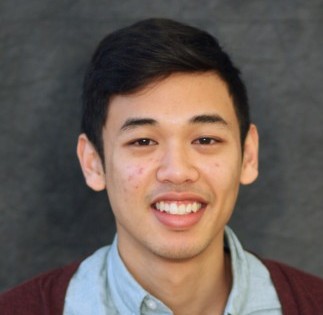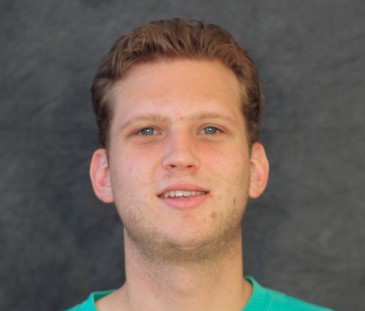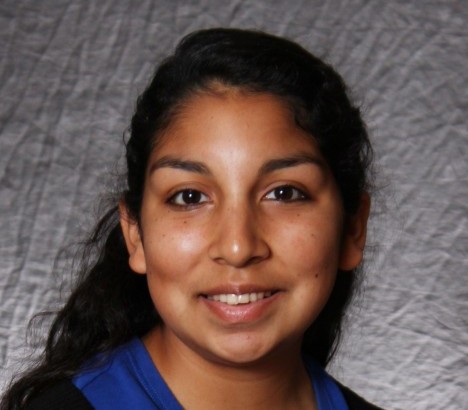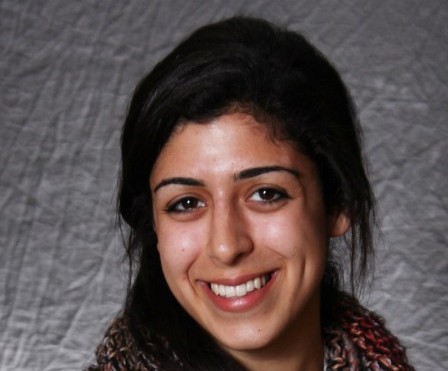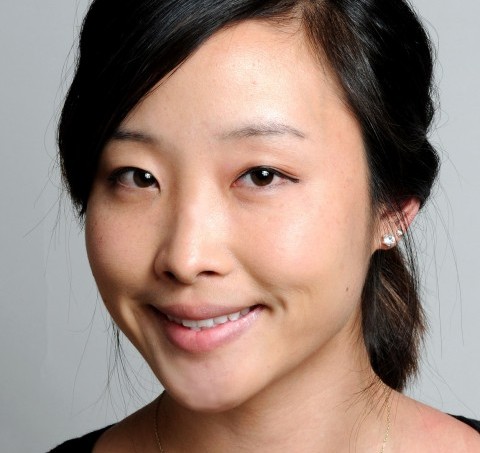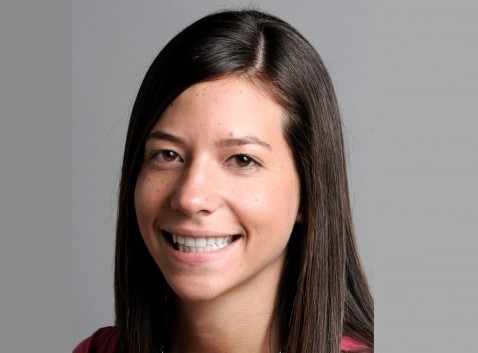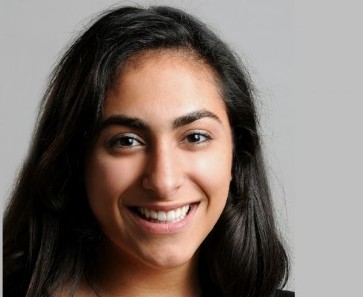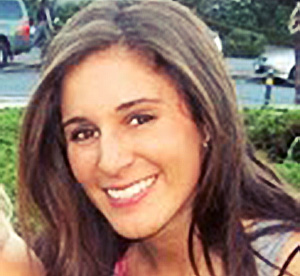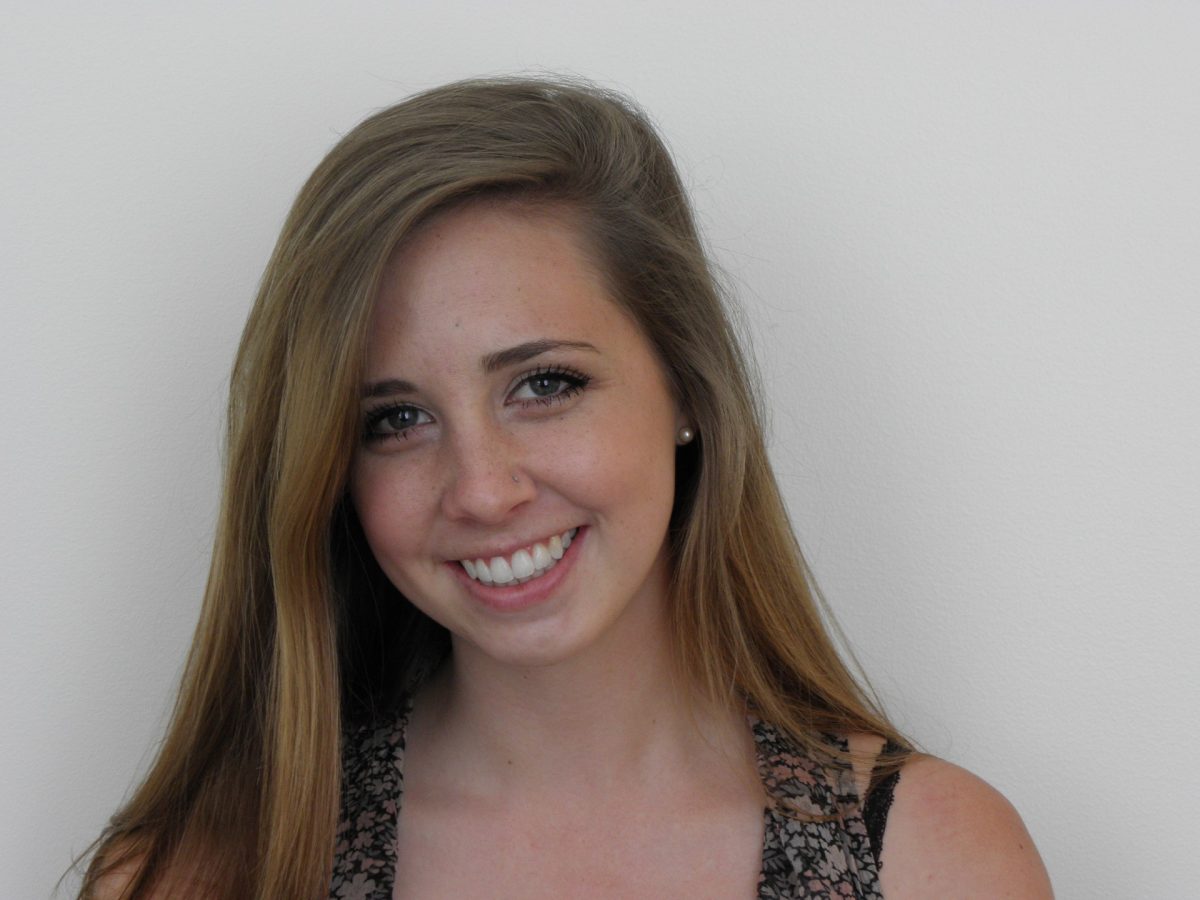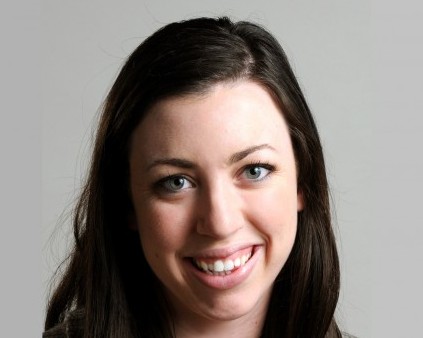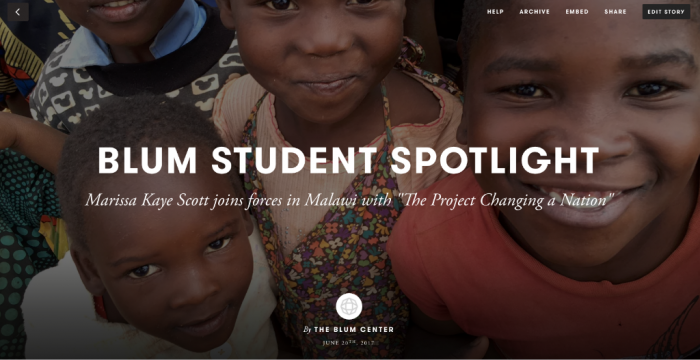 Global Poverty and Practice student, Marissa Kaye Scott, travels to Malawi to support the program making big impacts in the “warm heart of Africa”. Click here to read more.
Global Poverty and Practice student, Marissa Kaye Scott, travels to Malawi to support the program making big impacts in the “warm heart of Africa”. Click here to read more.
Category: Student Stories
Teaching Leadership, Female to Female
What Will the Children of Madagascar Inherit?
By Roxanne Rahnama
There is a local Malagasy proverb in the southeast Anosy region of Madagascar that goes Ny fianarana no lovasoa indrindra: Education is the best heritage.
In this same isolated region of Madagascar, a country that ranks 151st (out of 187) on the United Nations 2013 Human Development Index, approximately 90 percent of the population lives in chronic poverty, below the international poverty line of $1.25 per day.
Since the World Bank and IMF structural adjustment policies of the 1980s, which drove Madagascar deep into debt and continuous aid dependency, there has been a particularly stark deterioration in the country’s education system, among its other sectors. Some 3,000 communities lack even a basic primary school; 50 percent of school-aged children have never been to school; and in the Anosy region, the literacy rate is alarmingly low at 34 percent.
While the new president of Madagascar, Hery Rajaonarimampianina, has pledged to fight poverty and increasingly invest in the education sector of the country, it will require a great deal of political will and commitment to undo the damages of colonialism, structural adjustment policies, and political unrest since the country gained independence in 1960. Furthermore, since the 1980s, Madagascar has confronted a widening range of climate-related challenges, including drought, more violent and frequent cyclones, the spread of malaria, recurrent flooding of schools and other basic infrastructure, and exacerbated food security issues.
During my Summer 2014 practice experience as a student in the Global Poverty & Practice minor at UC Berkeley, I spent six weeks in the Anosy region working on education projects with a UK-Malagasy joint community development organization called Azafady. A particular experience on a sweltering mid-July day remains locked in my memory. A group of volunteers, staffers, and I visited an abandoned primary school in a rural commune called Tsagnoria, for which Azafady is currently raising money so that local children ages 7-16 can regain access to their national heritage. The following series of photographs document that place.
Winners of the 2014 Global Poverty & Practice Photo Contest
Each fall, students of the Global Poverty & Practice minor of the Blum Center compete to win a cash prize for best photography from their practice experiences. Below are this year’s winners.
1st Place: Priscilla Liu, Hariana India
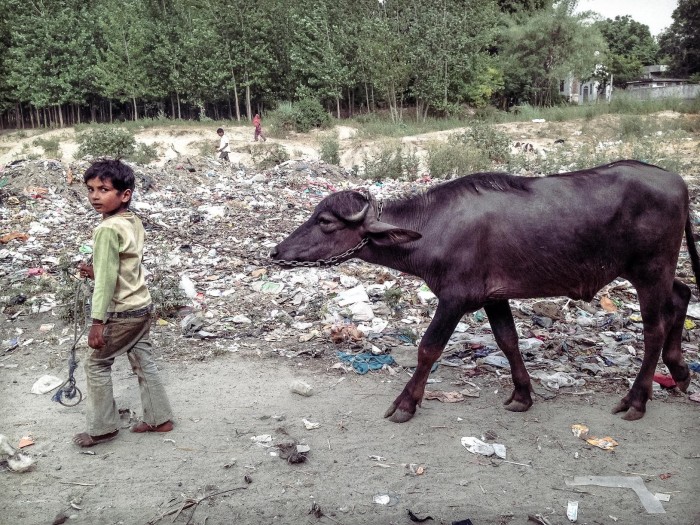
In the foreground, a young boy in a migrant camp in Hariana, Punjab tends a water buffalo. Like other children in the camp, he’s kept home from school to contribute to chores like tending animals or sorting trash. In the background, another boy sorts trash to be sold and a woman walks to a forested area in the camp where ditches serve as makeshift toilets.
2nd Place: Roxanne Rahnama, Fort Dauphin, Madagascar
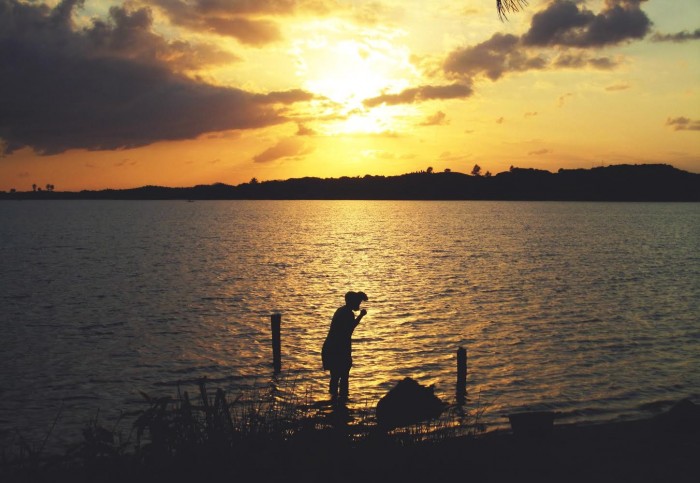
A woman brushes her teeth at sunrise, using water from a lake in Fort Dauphin, Madagascar, where villagers bathe, wash their clothing, and often openly defecate. Water supply and sanitation are serious problems in Madagascar, where diarrheal disease is a top lethal illness among children under the age of 5.
3rd Place: Thoa Hoang, New Delhi, India
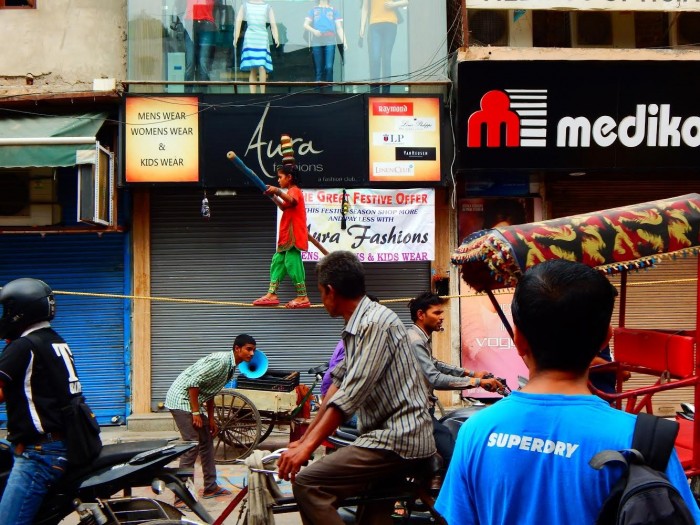
Walking across a tight rope in the middle of a busy market, this little girl is earning her keep, working to support her family. New Delhi residents tend to pay her only a swift glance, whereas foreign tourists sometimes drop a couple rupees into her metal bowl.
Students’ “Feeding Forward” fights hunger, food waste
http://newscenter.berkeley.edu/2014/11/12/students-feeding-forward-app-fights-hunger-food-waste/
Water Comes First: Ashley Miller’s Work To Support Infrastructure in Southern Kenya
By Sean Burns
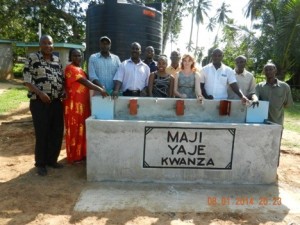
How can a wedding change a village? Sounds like some kind of development riddle, or maybe even a Hollywood screenplay. Not for Global Poverty & Practice senior Ashley Miller.
In the summer of 2013, Miller travelled to Nairobi to participate in a study abroad program at Kenyatta University. As is the case for many students’ international sojourns, Miller’s most transformative experience didn’t occur in the classroom. In the final week of her summer program, Louisa Mwenda, a fellow Kenyatta student invited her to a family wedding in the Kaloleni region of Kenya. The trip would profoundly redirect the course of Miller’s undergraduate education and the entire community of Mihingoni, a sub-county of Kaloleni.
Mihingoni is a 6,800-person village in the southern coastal province of Kenya. Miller and Mwenda made the seven-hour bus ride from Nairobi together through farmlands to the Indian Ocean. During the weekend, Miller found herself in all kinds of engaging conversations. Mwenda’s father, an American R&B aficionado, bonded with her over Marvin Gaye, Nina Simone, and the global diaspora of African-American culture. But one thread of conversation trumped them all: the limited access to safe drinking water in the Mihingoni village.
For Miller, conversations about water access and public policy were not new. Concern for the political and environmental dimensions of water distribution were part of what drew her to the Blum Center’s Global Poverty & Practice Minor at UC Berkeley and led her to define her own major in Interdisciplinary Studies. Miller’s courses at Kenyatta built upon this interest, focusing on the intersection of resource conflicts with the politics of gender and the challenges of environmental degradation. During her weekend in Mihingoni, she witnessed how everyone depended on rain catchment and, as she began the trip back to Nairobi, filled with the joy and connections of a wedding weekend, she found herself envisioning an ambitious water project with members of the Kenga Family.
“I remember saying to Louisa’s aunt during the car ride: Why don’t we work together to get safe water to Mihingoni? But, at first, she misunderstood me; she thought I was suggesting drilling a community bore hole—a small-scale and short-term water source that is commonly funded by outside NGOs.” What Miller envisioned was more ambitious.
About 1.5 miles outside of Mihingoni, access to municipal Kaloleni water stops. Beyond, there exists no public infrastructure for the distribution of safe, treated water. What Miller and her comrades in the Kenga family began to flesh out—in the weeks and months after the wedding weekend—was a plan to extend the public water main to Mihingoni, bringing safe water to at least 3,000 community members.
Being an entrepreneurial Cal student, Miller sought out the Big Ideas@Berkeley competition as a venue to develop and seed fund the idea. Between the fall of 2013 and spring 2014, Miller, through continual and in-depth communication with members of the Kenga family, created a proposal for a community-built project that, in collaboration with Kilifi-Mariakani Water & Sewage Ltd., the Kaloleni municipal water supplier, would bring safe water to a community-accessible water kiosk located at the central Mihingoni Primary School. The location was chosen for many reasons. First, the school serves more than 800 students; drinking taps and hand-washing sinks would make a significant improvement to quality of life for students and teachers. Second, the Kenga Family had direct ties to the school faculty, and everyone felt that the school administration was well poised to equitably oversee the community water kiosk through a newly created water committee made up of parents, teachers, and the school principal.
When Miller’s proposal won 2nd Place in the Big Ideas @ Berkeley Human Rights category, she knew she had accomplished an important step toward the project’s realization. To complement this momentum, the Clinton Global Initiative University (CGIU) invited her to the 2014 annual conference. Both Big Ideas and CGIU provided Miller with the mentorship and networking essential to the developing project.
In her lengthy conversations with the Kenga Family, the phrase “maji yaje kwanza” became a guiding aphorism. It translates: water is the first thing or water comes first. For Miller, the phrase struck her as an ideal name for the project. Much of her undergraduate study has focused on the relationship between water access and broader social justice determinants, including access to education.
“My goal in the project was always about assisting the Mihingoni community in overcoming infrastructural and political barriers to self-determination,” she said in an interview. For Miller and her local collaborators, this decidedly meant working with rather than around local government. “Many of the international nonprofits in Kenya are digging wells for clean groundwater. While this is good and often reliable, it does not sufficiently address bigger systems of inequality,” she explained. Maji Yaje Kwanza therefore is a community project that seeks to hold the public sector accountable to the populations it is underserving.
During a three-week period in June and July of 2014, Miller and her Kenga Family collaborators successfully coordinated the construction of the 1.5-mile extension of the municipal water main to reach Mihingoni Primary School. With essential support from the local chief, a government water engineer, and school officials, the project hired nearly 200 village residences to dig the trenches and backfill over the new piping. For storage and distribution of the water, two 10,000-gallon tanks were installed at the school property, which now lead to washing sinks and drinking taps.
The Maji Yaje Kwanza team handled the budget and payroll, with a total cost of $20,000 largely subsidized through the Big Ideas award, additional Blum Center support for standout CGIU student projects, and a collection of grants from other sources, including the Donald A. Strauss Foundation, Berkeley’s Center for African Studies, and the Shinnyo-En foundation.
Miller is now waiting to hear news of the commencement of water delivery to Mihingoni. While Maji Yaje Kwanza completed the water main extension and water storage aspects of the project, a larger World Bank-funded initiative is necessary to provide sufficient pumping capacity to get the water to consistently reach the village. Once this comes together, thousands of people will have access to the school water kiosk and, over time, to domestic taps along the 1.5-mile pipe. The school will sell the water for approximately 6 cents for 5-gallon container of water. This price will enable the school to cover the meter costs, with any additional income going toward the purchase of hand soap (for the three new sinks), antiseptic for the pit latrines, and toilet paper for the students and staff. For Miller, once the water begins to flow, the next steps will be multiple. First, she aspires for all sub-counties within the Kaloleni region to have similar access to municipal water; this means replicating and scaling up the community process just completed in Mihingoni.
While the first phase of this might be community water kiosks, a further step, in the minds of many residents, should be infrastructure for people to directly receive water in their homes and on their farms. Miller agrees, and she has a particular interest in expanding the practice of rainwater harvesting and drip irrigation in agriculture, the predominant industry in the province. In part, her aspirations are informed by international perspective. “There are many other regions in the world more arid than Kaloeni that have the infrastructure of sophisticated, public water systems,” she said. “Think about many areas in the Middle East. Why isn’t this the case in Kenya?”
The answer is not lost on the people of Mihingoni. According to Miller, they analyze the inequities that confront their daily lives within the longer history of colonial exploitation of the coastal regions of Kenya. This history has included land acquisition and forced resettlement by successive waves of Portuguese, Omani, and British control. The Mihingoni are committed, pitchfork by pitchfork, community meeting by meeting, to reverse these colonial legacies.
Sean Burns serves as the Director of Student Programs for the Blum Center for Developing Economies at University of California, Berkeley.
Generation Innovation: Jessica Praphath on the Realities of Direct Service Work
By Sybil Lewis
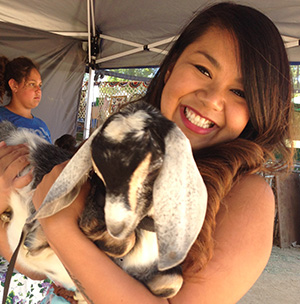 Many students graduate from Cal intent on making an impact in the world. The reality of direct service work, however, can cause even the most committed to feel discouraged and to question what meaningful and financially sustainable work looks like—challenges that Jessica Praphath, a Cal alumna, faced while working on poverty alleviation in her hometown of Stockton, California.
Many students graduate from Cal intent on making an impact in the world. The reality of direct service work, however, can cause even the most committed to feel discouraged and to question what meaningful and financially sustainable work looks like—challenges that Jessica Praphath, a Cal alumna, faced while working on poverty alleviation in her hometown of Stockton, California.
Stockton was hit hard by the 2007 financial crisis. In 2008, foreclosures soared to 9.5 percent and housing prices fell by 39 percent. In July 2012, it became the largest American city to file for bankruptcy protection.
Praphath, whose parents immigrated from Thailand, grew up in “pockets of poverty” in the predominantly Southeast Asian communities around Stockton, and returned there a week after graduating from UC Berkeley in 2013, determined to work on public health and community issues at the grassroots level. She could have stayed in the more affluent cities of the Bay Area, but after minoring in Global Poverty & Practice (GPP), she said she decided her vocation was to better “understand the systemization of poverty and how I and my community fit into that system.”
Praphath’s first job out of Cal was at a resource center of the Community Partnership for Families of San Joaquin, where she completed her GPP practice experience. There, she was in charge of establishing a virtual education program for students in low-performing schools in south Stockton. But when you “work in a nonprofit in Stockton you wear 25 different hats,” she said. She soon became involved with the nonprofit’s umbrella program, Neighborhood University, providing online parenting and English as a Second Language (ESL) classes.
Praphath worked countless hours to provide ESL, one of the community’s highest demands. Although the first few weeks of classes started off with about 40 people, over time the numbers slowly faded. Eventually, the classes were cancelled due to low attendance. Praphath said she was disappointed to “work so hard and then watch the project fail.”
The failure felt personal. Yet she also knew that the class’s low attendance might have something to do with the culture of welfare in south Stockton. Many people were distrustful of organized social assistance, in part because Stockton’s district lines had been redrawn so that most of the post-crash development money went to renovating downtown rather than to helping low-income south Stockton. Residents became accustomed to social workers using data about their lives to collect grant money that eventually went elsewhere.
Praphath said she discovered that one of biggest problems in development work is to empower a community that has been exploited or ignored. Another challenge is the lack of funding for community members and those who want to work with them. Praphath’s $13 hourly wage did not cover her monthly bills, which include payments on almost $20,000 in student loans. The Community Partnership for Families of San Joaquin also wasn’t able to provide her health benefits or employ her full-time, even though she was putting in 40 to 50 hours per week.
After months of exhausting work and financial difficulties, Praphath reluctantly left the family center for a job at the Health Education Department of Community Medical Centers, a federally qualified health center in Stockton. Yet two months into the job, she said she felt something was missing—the one-on-one interactions with people, the community aspect.
To fill this gap, she volunteered for the Reinvent Stockton Coalition, a community-based initiative spearheaded by Stockton City Councilman Michael Tubbs. Praphath said the coalition has made her rethink what works in community development. “I graduated from Cal thinking that meaningful work was measured by how many people you can get in a program,” she said. “But in the field, it’s not about that. Being effective is not about 40 people attending your ESL class or health workshop. It’s about whether you can change people’s lives.”
Looking back, Praphath said she thinks attendance of the family center’s ESL classes dropped partly because beneficiaries were not involved in shaping the classes. She is a believer in the participatory development of social programs. Yet she realizes this is easier said than done, especially when there is a “disconnect between professional and college-educated people and community members.”
At Community Medical Centers job, she sits on a bimonthly public health task force that brings together representatives from nonprofits, foundations, and government organizations to discuss plans for public health initiatives. Praphath believes in the mission of the taskforce and sees a strong desire to enforce change, but she notes that a fundamental piece is missing: a community representative. The same was true for the initial planning meetings of Reinvent Stockton. When she looked around the table during those first meetings, all she saw were dedicated people who went to good universities and, like her, returned to Stockton to help improve it.
Praphath has since played a vital part in the Reinvent Stockton coalition’s expansion to south Stockton community members. They helped write two assessment surveys, which mapped Stockton’s “community strength index,” focusing on issues such as education, public safety, housing, economic development, and health. And in July 2014, the coalition launched its first community assessment survey, from which community members and volunteers collected more than 800 surveys.
Praphath, who is collecting follow-up surveys, recalled an emotional phone conversation with a south Stockton resident named Regina about crime and policing. Regina told Praphath that her son had recently been shot and that distrust of the police was high. “I talked to Regina for 56 minutes and 8 seconds,” she said. “I know the exact time because I remember getting off the phone and feeling like it was one of those experiences where you feel so connected to another human being and it helps you understand your purpose and why you are doing what you are doing. All the stress goes away and it all makes sense.”
Praphath said when she first returned to Stockton with her UC Berkeley degree, some people expected her to have all the answers. She made it clear that she was there to learn. “When I meet community members, I let them do a lot of the talking,” she said. “This way, I am seen not as someone who is trying to push knowledge or test out my education, but as someone with a genuine interest in what they have to say.”
A year later, she has come to believe that community members are the ones with the answers. They are the experts—the “think tanks” as she puts it.
The Challenges of Development Economics: An Interview with the Blum Center’s Kweku Opoku-Agyemang
By Tamara Straus
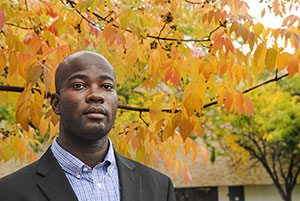 Kweku Opoku-Agyemang, a postdoctoral fellow at the Blum Center, believes that one of the greatest downfalls in the field of international development is detachment.
Kweku Opoku-Agyemang, a postdoctoral fellow at the Blum Center, believes that one of the greatest downfalls in the field of international development is detachment.
“Training in development is often solution-oriented. It involves implementing projects,” the 34-year-old Ghanaian said. “This may be why it’s easy to be detached from people and places. But detachment can have bad outcomes.”
Opoku-Agyemang has been subtly underscoring this point in his UC Berkeley course, “Poverty, Technology, and Development.” During a recent lecture, he told students the case of the Lake Turkana fish processing plant, a $22 million project designed in 1971 by the Norwegian government to provide jobs to the Turkana people of Kenya. The idea was to get the Turkana to run a fish processing plant for export, but the Turkana are nomads with no history of fishing or eating fish. Furthermore, the plant operated for only a few days, because running the freezers and providing them clean water in Kenya’s northwest desert were just too costly.
The field of international development is strewn with such stories of ineffectiveness or, to use Opoku-Agyemang’s word, “detachment,” in all its cultural, psychological, sociological, and historical variations. “About half of World Bank projects fail, costing billions of dollars,” he reminded his students—before launching into the larger question of the course and his current research: whether the current wave of technological advancement can alleviate global poverty.
“That’s an ongoing discussion,” said Opoku-Agyemang. He is measured in his opinions, perhaps from a decade-plus of education and research, in which he earned a doctorate in Development Studies from the University of Wisconsin-Madison, an M.A. in Economics from Ohio University, and a B.A. in Geography from the University of Ghana. “It depends on the example. There is a lot of excitement about technology and development now, but I think it’s too early to tell how successful the results will be.”
Still, Opoku-Agyemang is not waiting on the sidelines to find out. He is among a new generation of international scholars using interdisciplinary approaches from political economy, development economics, behavioral economics, business economics, and applied econometrics to understand the effects of technological advances, particularly mobile banking and communications, on poverty alleviation. Already, he has designed several applied research projects that document, through both qualitative and quantitative methods, how best to both formulate and evaluate development projects.
According to one of his mentors, Jeremy D. Foltz, a professor of agriculture and applied economics at University of Wisconsin, Madison, Opoku-Agyemang’s doctoral thesis was a standout because it provided new insights into informal finance, particularly in savings and credit markets. Opoku-Agyemang’s thesis looked at Ghanaian susu collectors, who work out of marketplace kiosks and through whom rural earners without bank accounts deposit and access their own money. Susu collectors are one of the oldest financial groups in Africa. For a small fee, they will hold onto people’s money and enable savings. But Ghanaians who deposit money with susu collectors do not establish formal credit worthiness with banks, even though their savings rates can be relatively high. Opoku-Agyemang’s question was why—and, in turn, what does credit worthiness really mean?
In the summer 2010, he conducted a survey to explore how small entrepreneurs use susu collectors. Some made daily or twice daily deposits; others parted with their earnings twice-weekly, fortnightly, or monthly. What he found from collecting questionnaires from 400 clients confirmed a hunch: the more frequently a person deposited money with a susu collector, the higher that person’s credit score would be in traditional finance. Banks took note. Rural banks in the Central Region of Ghana even used Opoku-Agyemang’s credit worthiness measurements to expand their customer base.
“Kweku gained exceptional access to local bank officials in the Central Region of Ghana, where there is a banking sector project to scale up micro-lending and do mobile banking,” said Professor Foltz in an email. “In the space of one summer, he was able to collect the best most comprehensive dataset on susu banking in West Africa that I have seen.”
Opoku-Agyemang has been pleased to see the results of his research: More Ghanaian banks now work with susu collector unions to mobilize funds to their best clients. But he wonders whether some entrepreneurs’ savings rates will change as they enter the formal banking sector. “Working with a susu collector is very social,” he explained. “One of the shortcomings of formal banking is that it’s relatively impersonal.” In other words, there may be less motivation to save when you give your earnings to a machine as opposed to a person who can commend your will power to save rather than spend.
Opoku-Agyemang’s current research is looking at the role of mobile technologies in Ghanaian activism and political reforms. He explains that a decade following the reforms of the 1990s, which led to new constitution and a multiparty system, Ghanaians’ confidence in local government has dipped—in spite of a robust national democracy. Especially in rural areas, many Ghanaians are politically disengaged. District and town meetings are badly attended. Even the strong Ghanaian tradition of using radio shows as means for citizens to complain directly to elected politicians, seems to have waned. “People used to line up around the block to call into the radio shows. It was a very influential way to be heard and make change,” Opoku-Agyemang said.
His current study, like his previous one, is based on a hunch: people will become more informed and politically active if they have an easy mechanism to voice their opinions—particularly to those in power. To test this, he designed a field experiment in five languages for Ghana’s Central Region that randomly varies access to politically participatory radio shows and enables more call-ins through mobiles and voice messages. Opoku-Agyemang plans to see if those who call in more often are more likely to vote in local elections.
Opoku-Agyemang, who grew up in the historic trade city of Cape Coast, does not think he necessarily has an advantage being a Ghanaian studying Ghanaian and African development issues. “I am only one person,” he said. “I tend to be very hesitant if someone is generalizing about a people or a situation. Ghana is a nation of 25 million people.”
This preference for individual perspectives may have something to do with Opoku-Agyemang’s early education and family background. Unlike most academic economists, he grew up on literature. Opoku-Agyemang read Shakespeare as a teenager. He penned short stories in college. Literature is also the Opoku-Agyemang family business. His father, Kwadwo, is an emeritus professor of literature at University of Cape Coast, an expert on African oral literatures, a poet, and a novelist. His mother, Jane Naana Opuku-Agyemang, is a literary scholar as well, an internationally acclaimed expert on the African diaspora, and Ghana’s minister of education. Even Kweku’s siblings have felt the strong tug of books. His sister, Adwoa Atta, is a graduate student in French literature at University of Toronto; and his brother, Kwabena, is a graduate student of English literature at University of West Virginia.
Opoku-Agyemang explains his break from the family business in a matter of fact way “Mathematics is a language, too,” he said. But he admits that economics has appealed to him “because it tries to provide solutions. It provides me with a way to think about poverty as lived experience and as a public policy problem.”
Opoku-Agyemang said the experience that confirmed his interest in political economics occurred after he graduated from college. In Ghana, all public university graduates are required to spend a year working for the government. Opoku-Agyemang got assigned to the HIV/AIDS Secretariat and to a project aimed at lowering infection rates. Although there was public awareness of the disease, by 2005-2006 rates were rising. One of the results was that Ghanaians with HIV dropped out of basic school. The HIV/AIDS Secretariat decided the best approach would be reinvigorate the curriculum and set out to work with the Teacher’s Union. They decided that to reach students, all taboos should be on the table for discussion.
The creation of the teaching guide took six months of continual student-teacher workshops and a year before a final document was published. “The experience put me in touch with basic technology adoption—understanding how many iterations and modifications are required and how long it takes,” said Opoku-Agyemang. The experience also led to results. HIV infection rates fell from 3.6 in 2003 to 2.2 by 2008, and in 2013 only 1.3 percent of the Ghanaian population had contracted the disease. “I think it would have been very easy to quickly write up a teaching guide, give it to teachers, and be done with it,” Opoku-Agyemang said of the project’s success. “Instead, we realized that there needed to be as frank discussion as possible, that teachers and students would have to make themselves vulnerable.” In other words: no detachment.
Development experts around the world are now using psychological insights to inform social and economic policies—sometimes with results like one Opoku-Agyemang experienced at Ghana’s HIV/AIDS Secretariat. “Behavioral economics has become popular because in the past economists had a limited view of how people acted,” he said. “There wasn’t enough attention paid to basic human behavior, to procrastination and forgetfulness. What I like about behavioral economics is that what looks common sense is only proved after the fact. Common sense before a rigorous study is actually not so clear to pinpoint.”
UC Berkeley Professor Ananya Roy, who serves at the Blum Center’s education director, views Opoku-Agyemang’s work as part of an interesting moment in development studies and especially development economics. “On the one hand, there is great interest in specific methodologies such as RCTs [randomized control trials], as well as in the technologies that can be used to perfect such methodological approaches,” she said in an email. “On the other hand, economics is returning to broad questions of political economy, tackling the puzzles of capitalism and persistent poverty and inequality. What is inspiring about Kweku is how comfortably he inhabits both worlds. He thinks like a political economist, recognizing the need to have a global, historical, and critical understanding of development. But he is able to act alongside the practitioners of development economics and the advocates of poverty action. In this sense, Kweku represents the best aspects of the amalgam of approaches and worldviews that make up the academic programs of the Blum Center, notably the Global Poverty & Practice Minor and the Designated Emphasis in Development Engineering.”
Learn more about Dr. Opoku-Agyemang’s work in this video, “Mobile Democracy in Ghana.”
The Blum Center Postdoctoral Fellowship is supported by the Development Impact Lab at UC Berkeley in partnership with USAID. The fellowship aims to support research and teaching in a wide range of interdisciplinary fields and on a variety of subject areas relevant to poverty, inequality, and poverty action.
Why I Do Development Work
By Nikki Brand
August 26, 2014 | Four days after graduation, I found myself on a plane to Guatemala. I had taken a dream job in Panajachel, or “Pana,” as the locals call the tiny, bustling town on the shores of Lake Atitlan, known for eternal spring weather, volcano-framed sunsets, and charming streets (okay, single street) lined with stands of brightly colored textiles sold by Mayan women. With a strong ex-pat culture and high quality of life, Pana is a Guatemalan hub for international development nonprofits like the one I was working for: Community Enterprise Solutions (CES).
But I didn’t go to Pana or Guatemala to loll in touristic charm. I was there to see what I could do to help. Almost two decades after the end of the country’s 30-year civil war, Guatemalans—especially indigenous Guatemalans who make up the majority of the country’s population—face persistent violence, inequality, poverty, and corruption. Roughly half of the country’s population lives in poverty, and Guatemala is the second most unequal country in Latin America—second only to Haiti—with most of the national wealth owned by a small and almost exclusively ladino (non-indigenous) upper class.
My job was to foster small businesses, and to generate income for poor women. The idea, based loosely on the success of the beauty company Avon, was to give local people products to sell with health, environmental, and economic benefits—products like eyeglasses, water filters, and cookstoves—and offer them a percentage of the profits from their sales.
At CES, I worked side-by-side with a Mayan woman named Juana Xoch. Despite our different backgrounds, Juana became a friend and confidant. While I had a comfortable childhood in a DC suburb, Juana at age 10 became a nanny in Guatemala City after the Civil War destroyed her community. She had no formal education, but she had taught herself to read and write, and was supporting her four-year-old son Jonathon through her work at CES.
Juana and I led charlas (educational presentations), piloted a referral program, and held guest lectures at schools to drive community interest. Slowly, we made contacts, sold a few products, and honed our marketing skills. Yet I often found myself frustrated.
At Berkeley, I was used to throwing myself into my studies and seeing immediate results. Now, I worked 15-hour days and traveled up to eight hours on rickety, undependable public transportation in torrential downpours—often without much to show for it. An example: Juana and I would try to sell water filters in an area where another nonprofit had already given them away for free. And despite the fact that the filters no longer worked, the families wouldn’t purchase something, even at a low cost, that they previously hadn’t paid for.
Halfway through the year, I reached out to UC Berkeley Lecturer Khalid Kadir, a mentor and member of the Blum Center’s Global Poverty & Practice faculty, for help. I explained that my work was not succeeding as I expected or wanted. Khalid commiserated with me over the challenges of development fieldwork. Then he encouraged me to think of success not just as end goals and long-term plans, but as a process. Even if I couldn’t take something from A to Z immediately, just getting it from A to C might be an accomplishment.
I began to retrain myself, to see that, in the long term, the contacts we made and the skills we learned were valuable. In the short term, however, Juana and I knew that for the sales representatives in our region, income was directly tied to product sales; lower sales would mean lower pay, regardless of what was learned in the process. And so, we sought to achieve a balance: we found ways to boost sales in the short term, while thinking about long-term ways to help Guatemalan communities facing hard challenges and ongoing conflict.
Now, I look back to see that my initial desire to get from A to Z was absurdly idealistic. Change, especially when dealing with issues of poverty and inequality, is slow. Yet I came to learn that this desire was both understandable and necessary, because without the energy to foster change, I would have found myself completely paralyzed.
Nikki Brand graduated from UC Berkeley in 2013 with a B.A. in Peace & Conflict Studies and minors in Spanish and Global Poverty & Practice. She spent her first year after graduation as a field consultant in rural Guatemala for Community Enterprise Solutions, and currently works at USAID’s Global Development Lab in Washington, DC.
Stephany Martinez Tiffer
worked on issues of sexual and reproductive rights in Nicaragua with the organziation Centro De Mujeres Ixchen
Estrella Sainburg
worked in Chiapas, Mexico with Fundación Cántaro Azul focusing on issues with water filtration, treatment, & drinking water distribution
Elizabeth Cho
completed her practice with Uganda Development Health Associates, supporting programs for individuals with HIV/AIDS
Danielle Puretz
worked in New Orleans, LA with Young Aspirations/Young Artists, engaging youth in public awareness and social engagement through art.
Asia Tallino
worked in Senegal, Africa with Urban Farmers GIE, assisting the organization with fundraising as well as researching urban agricultural practices
Janine Myint
completed her practice experience in Mumbai, India with the Bombay Leprosy Project working to provide specialized care to those diagnosed with the disease
Brenda Hernandez
worked in the city of Jaipur in Rajasthan, India with the Bhoruka Charitable Trust’s Health of Urban Poor program.
Samantha Dizon
worked with Gawad Kalinga in the Philippines last summer on issues of women empowerment.
Chelsea Harmon
completed her practice experience with TECHO assisting with community development programs in Santiago, Chile.
Esther Chung
worked with the Uganda Village project on health care initiatives and preventative public health education.
Brenna Alexander
worked on HIV/AIDS prevention and treatment programs as well as volunteered with an orphanage in Cambodia last summer.
Christopher Buoy
completed his practice in Cambodia last summer, working on an HIV/AIDS awareness and prevention program.
Christopher Carson
interned with Virtus (Виртус), a non-profit organization in the Ukraine to prevent the spread of HIV and aids.
Crystal Cantabrana
Completed her practice with Nest, a nonprofit microbartering and fair trade organization in Nairobi, Kenya.
Arienne Malekmadani
Completed her practice with Blue-Med Africa in Ghana. She shadowed doctors, and assisted with patient intake and outtake.
Angela Roh
Completed her Practice in Trichy, India working with Nest, a nonprofit microbartering and fair trade organization.
Nikki Brand
Completed her Practice in Panajachel, Guatemala where she worked with Nest, a nonprofit microbartering and fair trade organization.
Shahrzad Makaremi
Shahrzad completed her Practice with Sambhali Trust in Jodhpur, India to support the education and empowerment of lower-caste women.
Julia Hurwitz
Completed her Practice in Togo, Western Africa where she worked with Nest, a nonprofit microbartering and fair trade organization.
Danika Kehlet
Completed her Practice in Quito, Ecuador where she worked in a reproductive health clinic and assisted with sexual and reproductive health education.
Kelsey McCarthy
Completed her Practice in Cape Coast, Ghana where she worked with the Rural Women Development and Health Initiative.
